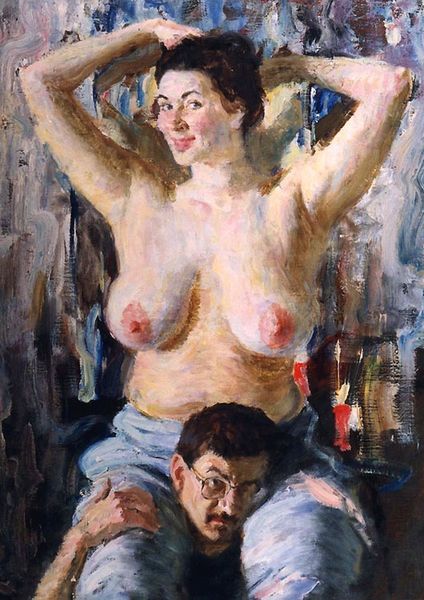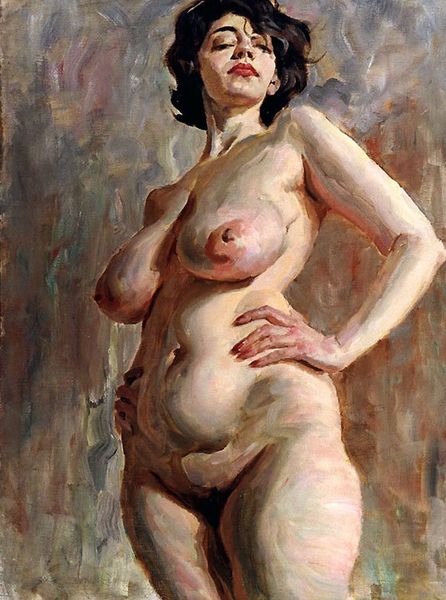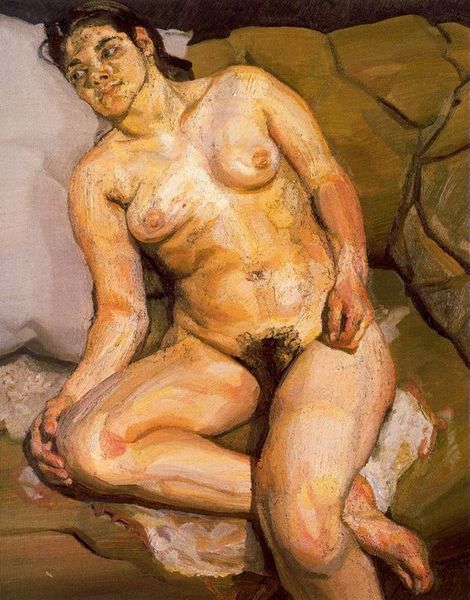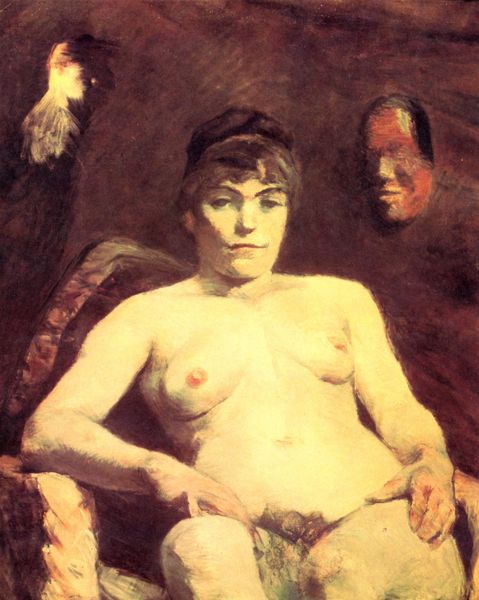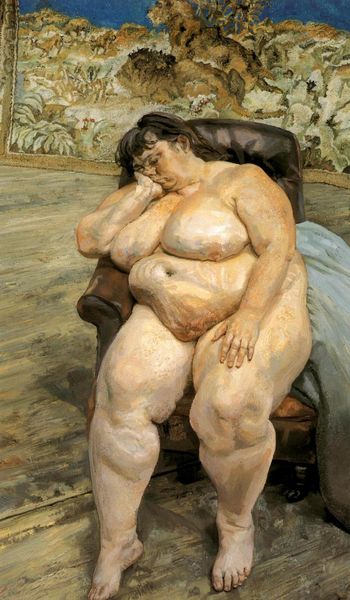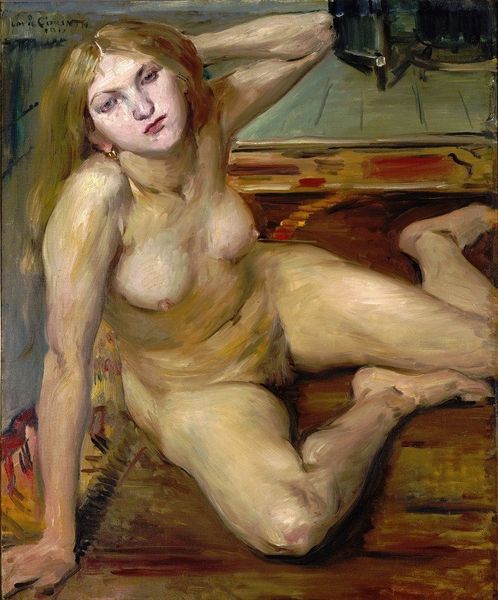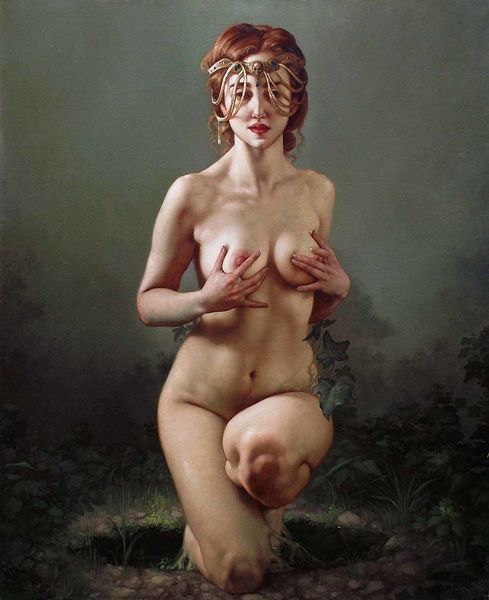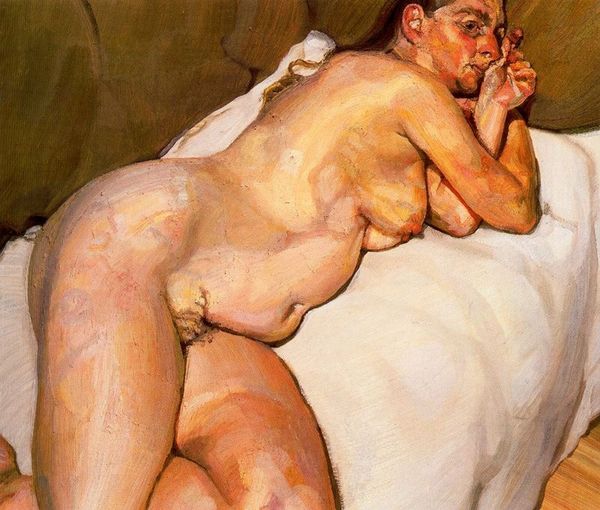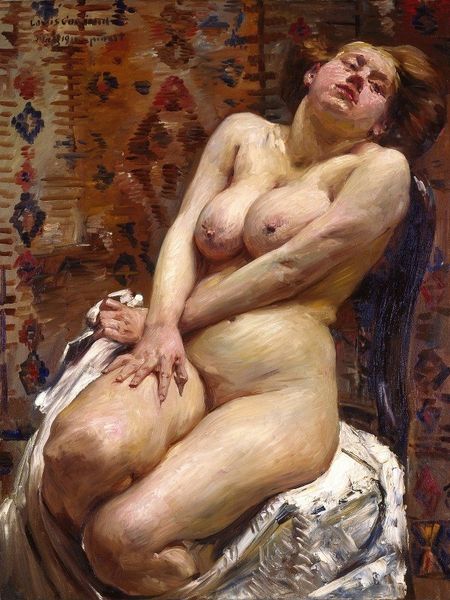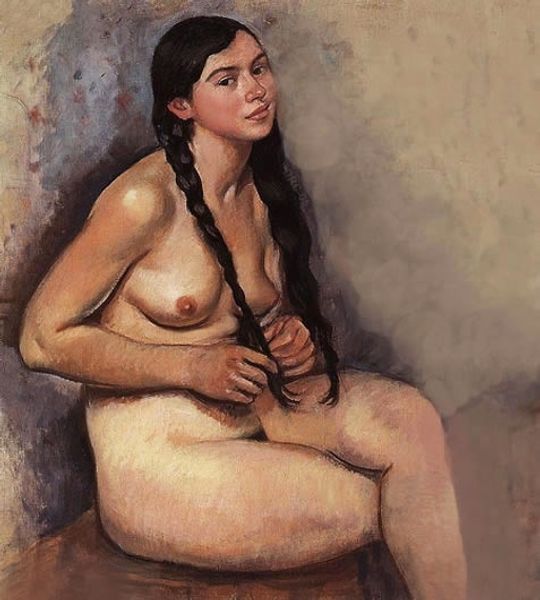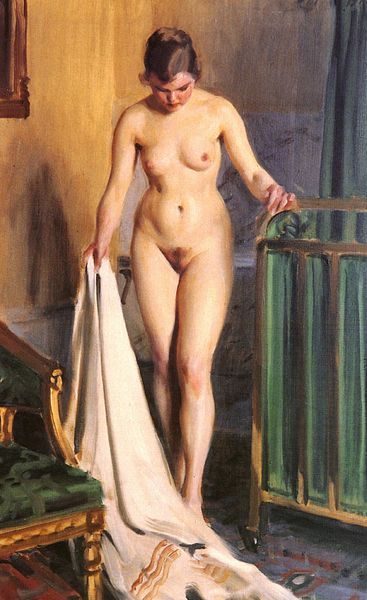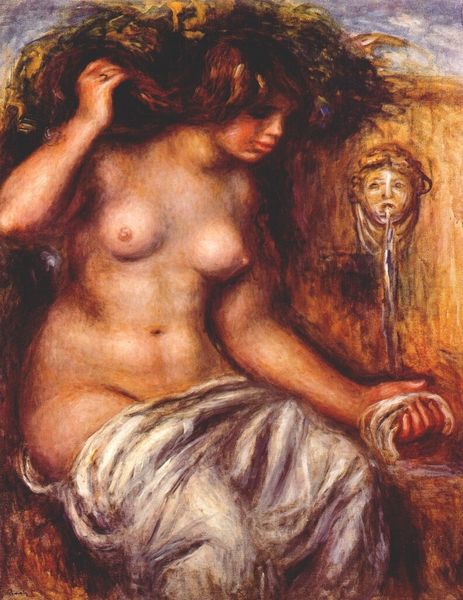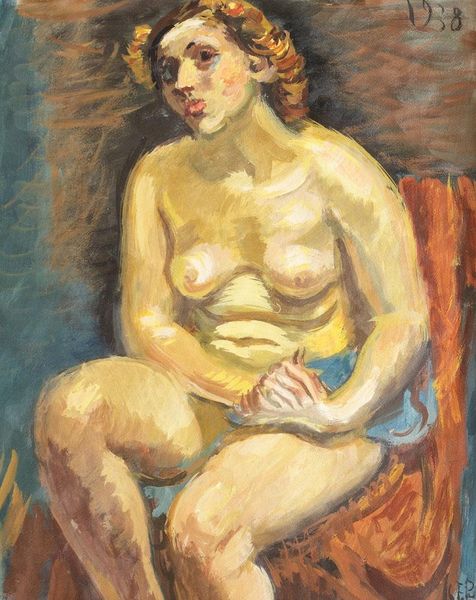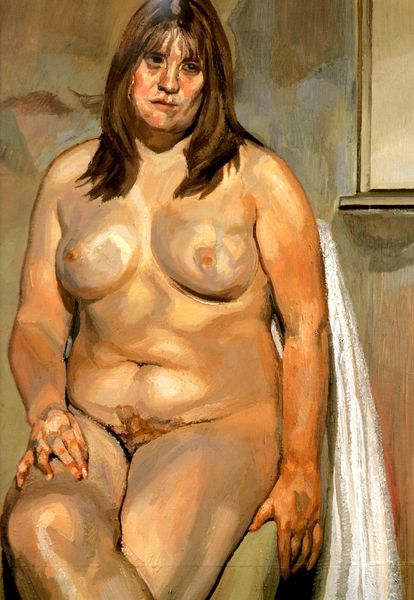
Copyright: Viktor Lyapkalo,Fair Use
Editor: This is "After Bathing," an oil painting by Viktor Lyapkalo, created in 1993. The raw, almost confrontational gaze of the figure is what strikes me first. It's a very intimate portrayal. What do you see in this piece, beyond the obvious subject matter? Curator: The gaze is precisely where its power lies, isn't it? Notice how the mirrored reflection behind her seems almost demonic. This work isn't simply a nude; it's a commentary on self-perception, perhaps even a critical one. The mirror traditionally symbolizes vanity, but what else could be lurking beneath the surface, in the collective memory, or in her psyche? Editor: That’s fascinating! So you're suggesting the image challenges more than just aesthetic conventions. The reflected figure feels like an embodiment of a critical internal voice, a harsh superego maybe? Curator: Precisely. Or even something more primal, emerging from a shared unconscious. Think about centuries of depictions of female nudes in art and where this one departs. There's a boldness here, almost a rebellion against idealized beauty standards, underscored by the male figure hiding behind in the mirror. What does the act of veiling conceal or reveal? Editor: So, the act of concealing can reveal deeper symbolic weight. The woman’s unflinching gaze, despite her partial nudity, empowers her, doesn’t it? It's about challenging accepted narratives, right? Curator: It seems to suggest there is an implied story, it’s an embodied image rather than something ethereal. There’s definitely a discourse unfolding here regarding feminine identity. Editor: This has changed my perspective. It is powerful how symbols reveal the internal tension that is portrayed through Lyapkalo’s subjects! Curator: The symbol systems create the potential for infinite layers of interpretation!
Comments
No comments
Be the first to comment and join the conversation on the ultimate creative platform.
